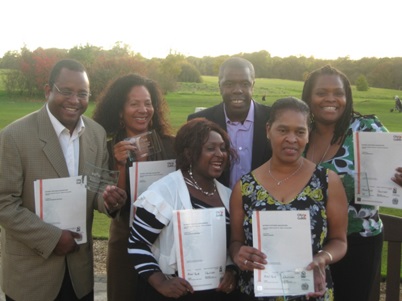Personal Development Plans

Current Fostering National Minimum Standard 20.5 requires that foster carers’ personal development plans set out how they will be supported to undertake ongoing training and development that is appropriate to their development needs and experience. These standards also (NMS 20.6) require that the reviews of each foster carer’s approval include an appraisal of performance against […]
TSD 5.3 (C): Being ‘able to work with young people to develop skills, self-confidence and knowledge to prepare them for adulthood and independent living’

A good level of independent living skills are essential, as care leavers struggle to reach the same levels of educational attainment as their peers and often find it difficult to make a successful transition to adult life. They are overrepresented in prison populations, and are more likely to be unemployed, single parents, mental health service […]
Champion equality, diversity and inclusion

Learners who attempt to achieve the Level 5 Diploma in Leadership for Health and Social Care and Children and Young People’s Services (England) come from a range of leadership backgrounds including: Registered Managers Managers Assistant managers Deputy managers Senior care/support workers/supervisors Co-ordinators Team leaders Health and social care and children and young people’s services also […]
Existentialism and Responsibility for Your Actions

Existentialism is a radical philosophy which takes our life issues as its central focus. From an existentialism perspective despite people being in this world without their prior consent – it’s up to us to create our life’s meaning. According to Sartre, ‘existence precedes essence’ it means that people don’t have any predetermined purpose why they […]
Levels of qualifications attained makes a difference
The lower a young adult’s qualifications, the more likely they are to not be in employment but wanting paid work. For example, around a 25% of all people aged 25 to 29 with no GCSEs at grade C or above were not in employment but wanted paid work in 2010. This compares to around 7% of those with […]
Children in Care Need Male Care workers Too!
Male care workers can often be the first positive male role models that children have met, and play a vital role. But male care workers can face their own challenges in roles traditionally considered to be mainly carried out by women. Children in Care invariably bring a history of their relationships with males to fostering and […]
The Fostering Network the State of the Nation’s foster care survey (2016)
The Fostering Network the State of the Nation’s foster care survey (2016) – What foster carers think and feel about fostering is now available. The Fostering Network research involved in total 2,530 foster carers from across the UK completed the survey online: 1,942 of these fostered in England, 359 in Scotland, 122 in Wales and […]
Managing Quality Outcomes in Health and Social Care Settings
Managing quality outcomes is an essential element of management competence. Measuring and assessing service quality in the social care sector presents some distinct challenges. However, indicators of service quality, including those of service impact on outcomes for children. Monitoring can mean ‘continuous or regularly repeated observations of important parts of service structure, process, output or […]
Training Support and Development Standard 3.4 (Promoting positive behaviour)
Promoting principles for supporting the behaviour development in children and young people whilst meeting the Training Support and Development Standards. In terms of promoting positive relationships and socially aware behaviour the following methods are sometimes useful in supporting behaviour management and working in line with the Training Support and Development Standards: Using positive reinforcement strategies; […]
Promoting Safe and stable placements in which children can develop safe and secure relationships
The Ofsted Framework for Independent Fostering Services asserts that Looked After children should be supported, ‘in care, to live and thrive in safe and stable placements, in which they develop safe and secure relationships’. The Ofsted Framework for Inspecting Children Homes (2015:31), related to promoting safe and stable placements, states ‘where young people have left […]
